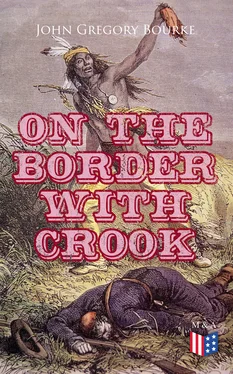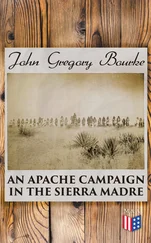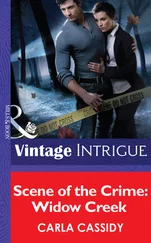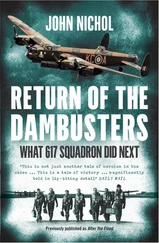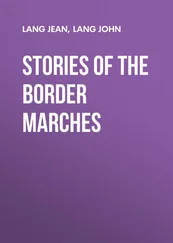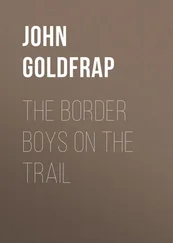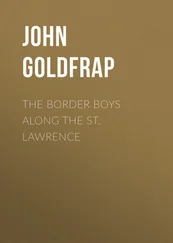1 ...6 7 8 10 11 12 ...31 The coming day found our party astir and hard at work. First, we hunted up the body of the Apache who had shot Israel. Lieutenant George Bacon, First Cavalry, found it on a shelf of rock, in a ravine not a hundred yards from where the white enemy lay, shot, as Israel was, through the head. We did not disturb it, but as much cannot be averred of the hungry and expectant coyotes and the raw-necked buzzards, which had already begun to draw near.
The trail of the savages led straight toward the Santa Catalina, and a hurried examination disclosed a very curious fact, which later on was of great importance to the troops in pursuit. There had been a case of patent medicine in the wagons, and the Apaches had drunk the contents of the bottles, under the impression that they contained whiskey. The result was that, as the signs showed, there were several of the Indians seriously incapacitated from alcoholic stimulant of some kind, which had served as the menstruum for the drugs of the nostrum. They had staggered from cactus to cactus, falling into mesquite, in contempt of the thorns on the branches, and had lain sprawled at full length in the sand, oblivious of the danger incurred. It would have been a curious experience for the raiders could we have arrived twenty-four hours sooner.
Fully an hour was consumed in getting the horses and mules down to the water in the Cañon del Oro, and in making a cup of coffee, for which there was the water brought along in the kegs in the wagons. Everything and everybody was all right, excepting Kennedy, who was beginning to act and talk strangely; first exhilarated and then excited, petulant and despondent. His sufferings were beginning to tell upon him, and he manifested a strange aversion to being put in the same vehicle with a dead man. We made the best arrangement possible for the comfort of our wounded friend, for whom it seemed that the ambulance would be the proper place. But the jolting and the upright position he was compelled to take proved too much for him, and he begged to be allowed to recline at full length in one of the wagons.
His request was granted at once; only, as it happened, he was lifted into the wagon in which the stiff, stark corpse of Israel was glaring stonily at the sky. A canvas ’paulin was stretched over the corpse, half a dozen blankets spread out to make as soft a couch as could be expected, and then Kennedy was lifted in, and the homeward march resumed with rapid gait. Animals and men were equally anxious to leave far in the rear a scene of such horror, and without whip or spur we rolled rapidly over the gravelly “mesa,” until we got to the head of the Santa Catalina Cañon, and even there we progressed satisfactorily, as, notwithstanding the deep sand, it was all down grade into the post.
In crossing the San Pedro, the wagon in which Kennedy was riding gave a lurch, throwing him to one side; to keep himself from being bumped against the side, he grasped the first thing within reach, and this happened to be the cold, clammy ankle of the corpse. One low moan, or, rather, a groan, was all that showed Kennedy’s consciousness of the undesirable companionship of his ride. The incident didn’t really make very much difference, however, as his last hours were fast drawing near, and Death had already summoned him. He breathed his last in the post hospital before midnight. An autopsy revealed the presence of a piece of headless arrow, four or five inches long, lodged in the left lung.
The funeral ceremonies did not take much time. There was no lumber in that section of country for making coffins. Packing boxes, cracker boxes, anything that could be utilized, were made to serve the purpose, and generally none Were used. The whole garrison turned out. A few words from the Book of Common Prayer—“Man that is born of woman,” etc.; a few clods of earth rattling down; then a layer of heavy rocks and spiny cactus, to keep the coyotes from digging up the bones; more earth; and all was over, excepting the getting ready for the pursuit.
This was to be prosecuted by Lieutenant Howard B. Cushing, an officer of wonderful experience in Indian warfare, who with his troop, “F” of the Third Cavalry, had killed more savages of the Apache tribe than any other officer or troop of the United States Army has done before or since. During the latter days of the preceding fall, 1869, he had struck a crushing blow at the courage of the Apaches infesting the country close to the Guadalupe Range in southwestern Texas, and had killed and wounded many of the adults, and captured a number of children and a herd of ponies.
But Lieutenant Franklin Yeaton, a brave and exceedingly able officer, just out of West Point, was fatally wounded on our side, and the more Cushing brooded over the matter, the hotter flamed his anger, until he could stand it no longer, but resolved to slip back across country and try his luck over again. He had hauled Yeaton and the rest of the wounded for four marches on rudely improvised “travois” across the snow, which lay unusually deep that winter, until he found a sheltered camping-place near the Peñasco, a branch of the Pecos, where he left his impedimenta under a strong guard, and with the freshest horses and men turned back, rightly surmising that the hostiles would have given up following him, and would be gathered in their ruined camp, bewailing the loss of kindred.
He had guessed rightly, and at the earliest sign of morning in the east was once again leading his men to the attack upon the Apaches, who, not knowing what to make of such an utterly unexpected onslaught, fled in abject terror, leaving many dead on the ground behind them.
All this did not exactly compensate for the loss of Yeaton, but it served to let out some of Cushing’s superfluous wrath, and keep him from exploding.
Cushing belonged to a family which won deserved renown during the War of the Rebellion. One brother blew up the ram Albemarle; another died most heroically at his post of duty on the battle-field of Gettysburg; there was still another in the navy who died in service, I do not remember where; and the one of whom I am speaking, who was soon to die at the hands of the Apaches, and deserves more than a passing word.
He was about five feet seven in height, spare, sinewy, active as a cat; slightly stoop-shouldered, sandy complexioned, keen gray or bluish-gray eyes, which looked you through when he spoke and gave a slight hint of the determination, coolness, and energy which had made his name famous all over the southwestern border. There is an alley named after him in Tucson, and there is, or was, when last I saw it, a tumble-down, worm-eaten board to mark his grave, and that was all to show where the great American nation had deposited the remains of one of its bravest.
But I am anticipating altogether too much, and should be getting ready to follow the trail of the marauders. Cushing didn’t seem to be in any particular hurry about starting, and I soon learned that he intended taking his ease about it, as he wanted to let the Indians be thrown off their guard completely and imagine that the whites were not following their trail. Let them once suspect that a party was in pursuit, and they would surely break up their trail and scatter like quail, and no one then could hope to do anything with them.
Every hoof was carefully looked at, and every shoe tacked on tight; a few extra shoes for the fore-feet were taken along in the pack train, with fifteen days’ rations of coffee, hard tack, and bacon, and one hundred rounds of ammunition.
All that could be extracted from the Mexicans in the way of information was pondered over, and submitted to the consideration of Felmer and Manuel Duran, the guides who were to conduct the column. Some of the Mexican men were composed and fully recovered from the effects of their terrible experience, and those who were wounded were doing well; but the women still trembled at the mere name of an Apache, and several of them did nothing but tell their beads in gratitude to Heaven for the miracle of their escape.
Читать дальше
